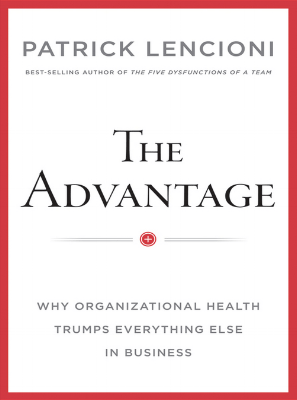How To Write Meaningful Company Values
(Thanks for reading, I’ve recently made a better version of this article here)
I have an irrational dislike of corporate lanyards with company values written on them.
This probably originated from my time at ANZ, where they put a series of generic words on a blue lanyard and expected it to mean something.
You know the ones – with words like “Excellence” or “Integrity” or “Teamwork”.
Has that ever motivated you?
Interestingly, I strongly believe in the importance of a company’s values.
They permeate everything you do, and are clearly apparent to everyone who comes into contact with you or your team.
Shared values turn colleagues into teammates, and turn mundane tasks into meaningful moments.
You have values yourself – principles that define “right” and “wrong” behaviours.
It might be in your work ethic, how you treat people, what you prioritize and times when you’re surprisingly casual.
These are especially clear when you work alongside someone with different values.
They’re also apparent when you see someone comply with the letter of the law, but not the spirit of the law.
When you hear someone say “It’s technically allowed” but you get a bad feeling about the situation, you’re probably seeing a clash in values.
Patrick Lencioni has a great framework that I found really useful.
He separates values into four categories: Core Values, Permission-To-Play Values, Accidental Values and Aspirational Values.
Core Values are the fundamental beliefs that you’ve held for as long as you can remember.
They affect all of your relationships and are apparent in everything that you do.
Lencioni suggests that the sign of a core value is that you naturally take them too far.
When The Difference Incubator first started, our CEO Bessi Graham said the three core values of TDi were Pioneering, Uncompromising and Relational.
That is, we’re not afraid of starting new things, we don’t dilute our beliefs, and we think that good relationships are at the heart of every one of our projects.
We had no interest in being a cookie-cutter consultancy that gave the same workshops to every client, or that treated people as cash cows.
It also meant we picked a lot of fights and took on a lot of tough projects.
Permission-To-Play Values are the minimum requirements for someone to work with you.
The kind of thing you would have thought was obvious.
e.g. we treat women with respect, we don’t steal from our customers, we don’t yell at staff who make mistakes, we don’t expect 70 hour weeks, etc.
You don’t expect a medal; you just think this is how business should work.
Accidental Values grow slowly, but are immediately apparent to new team members.
These are the behaviours and attitudes that are always present, like the things that get celebrated at team meetings, or the ways in which your leaders tend to communicate with staff.
You might notice that these aren’t always positive – in fact they can seem poisonous – such as treating colleagues with disdain, prioritising individual success, or silently shaming those who don’t work overtime.
Aspirational Values are the things you’d like to be doing (in the future).
This might be around how your team communicates, the impact of your work, the ways in which everyone structures their time…but you aren’t there yet.
This was a profound distinction for me.
In various roles, I’ve heard leaders talk about values that are on their minds, but that don’t match the present day reality.
That’s because we tend to think a lot about our aspirational values, and gradually turn them into core values.
A great rule of thumb is that a value should be something that not everyone agrees with.
If everyone agrees with you, it’s not a defining characteristic.
Instead, what do you do that some people find surprising?
An example that Lencioni uses is “Pick up the broom” – the idea that all team members naturally and cheerfully contribute to even the most basic tasks.
Colin Harmon does something similar – all team members are on the toilet cleaning roster in his cafes.
If this is offensive to senior staff, then this is not the workplace for them.
Another is Steve Job’s idea of “Varnishing the back of the dresser” – going the extra mile to perfect even the details that customers won’t see.
This polarises people; some get it, and some point out that it’s inefficient and expensive.
This is why generic words like “Teamwork” and “Integrity” mean nothing, unless you can express how you take them to a radical new level.
It might be that you’re so team centric that you have no individual bonuses – only team bonuses.
That would send a clear message.
Or maybe your team tell stories about a time where a staff member talked a customer out of a bigger purchase because it wasn’t right for them – and were congratulated by management.
That would prove what you mean by integrity.
“Show me your calendar and your bank statement, and I’ll tell you what you value”
I dislike values lanyards because words alone are hollow.
If these buzzwords aren’t matched by everyday decisions, they become either meaningless or bitterly ironic.
The best place to see values in action is in who you hire, and who you fire.
The attributes you hire send a signal – this is what we want to see.
The attributes in who you fire send a more powerful signal – this is not acceptable.
Think about that for a second.
Are you willing to tolerate talented jerks?
Will you accept rude or sexist behaviour from a top salesperson?
A lot of companies do.
You often see this in sports teams – who do they tolerate and who do they reward?
I’ve realised that my least favourite teams are the ones who excuse and incentivise awful behaviour.
The Cincinnati Bengals tolerate shocking people like Vontaze Burfict, who has repeatedly tried to injure opponents during breaks.
He’s a talented player, who goes out of his way to yank on the legs of players with bad knees.
I dislike Burfict, but I really hate the Bengals – who are fine with this sort of behaviour if it creates an advantage.
Burfict misses 4-5 games per year through suspension, and the Bengals endorse it.
Nothing they write on their walls can disguise their true value – winning at any cost.
On the other hand, teams like the Western Bulldogs trade their talented players if they are a negative presence or if they are unsportsmanlike.
This stings in the short term, but it reinforces a positive culture that will set them up in the long run.
Your calendar and bank statement show what you prioritize.
Maybe they highlight your core values, as separate from your aspirational values.
Your team will probably follow your lead, and structure their time accordingly.
Is that what you want?
It’s actually a fun process: brainstorm a list of your values, then separate them into core, permission-to-play and aspirational.
If you can, ask some trusted team members to do the same – they’ll probably have some great descriptions of your subconscious and instinctive preferences.











